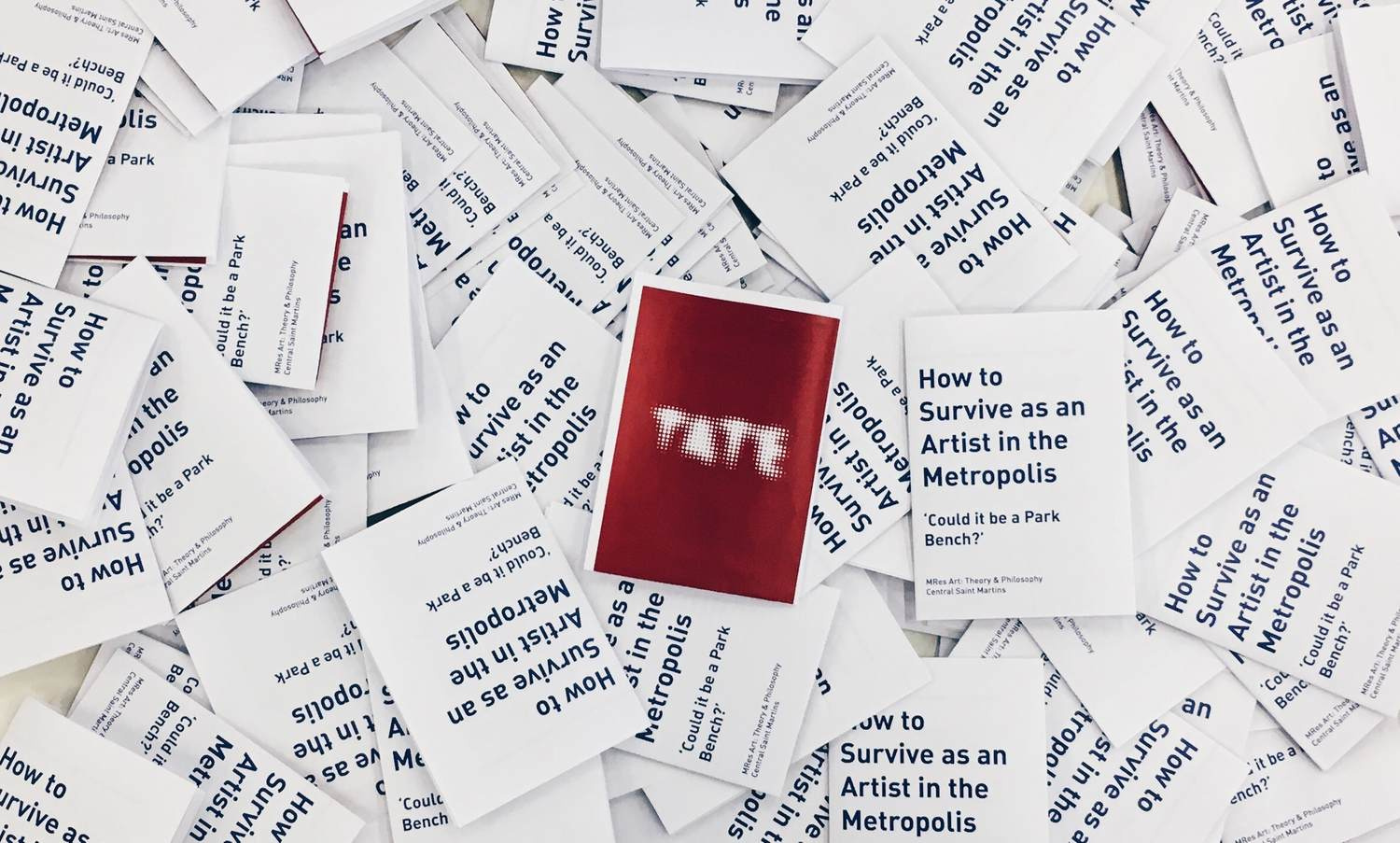
Co-organiser and manifestor writer for a group show/intervention into the Tate Exchange programme, entitled 'Could it be a Park Bench?'
The collaboration between students at Central Saint Martins and Tate Exchange is not a fair deal. Exchange involves a reciprocal transaction between two equal parties, and we are far from being on an equal footing.
To ask why studios are becoming increasingly inaccessible to artists whilst simultaneously asking them to produce work for free is an exercise in irony. The impossibility of survival for the artist in the metropolis is a reality born of unpaid ‘opportunities’ such as this. We, as artists and thinkers, offer our time, our labour, in exchange for what? Exposure, prestige and opportunity?
These fictional currencies don't pay our rent.
The studio does not belong to the artist. It is a social space, inseparable from the rhythms of the metropolis; that gridlocked obscenity, shuffling its subjects to the tempo set by the logistics of privatisation and regulated by the extensions of managerial logic.
It is not the city that makes scarce the time and space for artistic and intellectual pursuit. It is the City, with the politics of labour that it demands from institutions such CSM and Tate, a politics of easy conversion, from quality into measurable and exchangeable quantities. Art is the commodity, and the artist the labourer without the luxury of a contract.
All this leaves us with is the promise of precarity: part-time lectureships, self-funded shows, unpaid internships, Deliveroo jobs and a life-long neurosis from vain attempts to try to reconcile the logic of the market with the lived labour of artistic production.
Thus, when the Tate and CSM speculate about the studio of the future: “Could it be a park bench (...)?”1 They offer us a vision of what always-already lies ahead of us; the uninhibited horizon of homelessness for those who stay, or begrudging exile for those who can leave, because our labour has neither use nor value for a society in deep crisis.
Tate, with the help of CSM, has assembled a workforce of 200 qualified labourers to produce entertainment and cultural capital for Tate and its visitors, free of charge. At London Living Wage, with a minimum of two hours of work each, the total value saved by Tate with this operation amounts to £4080 (not including the weeks of labour in preparation). Will the Tate re-invest this amount to subsidise affordable studio spaces for young art graduates? Or will we have to find our own park benches?
Precarity is not a performance piece. Unpaid labour is exploitation.